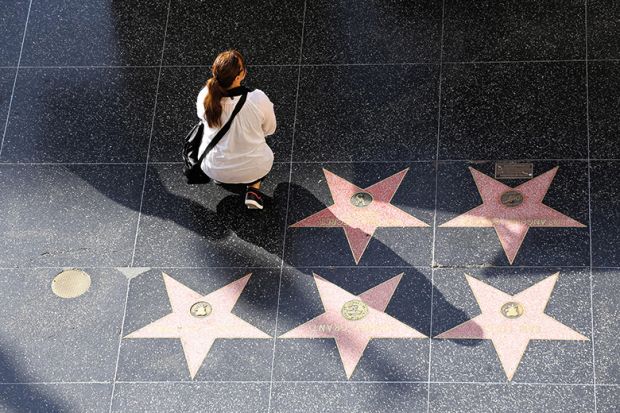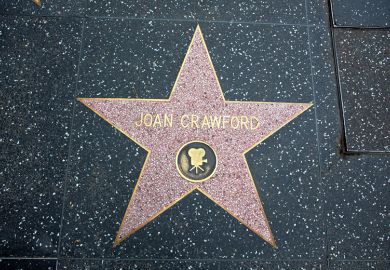Show business is dog eat dog,” Woody Allen once observed. “It’s worse than dog eat dog. It’s dog doesn’t return dog’s phone calls.” Given that agents have been among the biggest of those dogs pretty much since the dawn of show business, it is surprising that they have been so little written about. So this book is a welcome attempt to fill the void.
For a study that stresses the importance of personal relationships in Hollywood’s operation, it is striking how much it lacks a personal dimension of its own. Violaine Roussel claims to have “conducted 122 open-focused interviews with agents”, but none of these agents is ever described, let alone named.
There is a purpose to this anonymity. For a prime goal of the book, in a variation on the theme of what the French film critic André Bazin once called the “genius of the system”, is to show how any individual’s role is of minor importance in Hollywood’s greater scheme. Hollywood may have been built around the power of the charismatic personality, but even the most powerful mogul is ultimately no more than a cog in the machine of the dream factory. Roussel describes a complex reality in which the interdependence of different forces – agent, star, producer, director and writer – is such that no one person can claim sole credit for anything.
Roussel’s approach is that of the ethnographer, seeking to provide an analytical description of the characteristic behaviour of the Hollywood agent “tribe” rather than allow any space for the amusing anecdote or character portrait. Such is our association of Hollywood with schmaltz and razzmatazz that it is rather jarring to see it subjected to the antiseptic treatment of a scientist.
Coining the term “evaluation community” to describe the various participants (producers, movie stars and agents) in the elaborate process of decision-making that gets movies made, Roussel attempts to produce a taxonomy of the social frameworks that make up these communities, highlighting the agent’s pivotal position as the means of interchange between the different groups. She identifies a major fault line in which the “High Hollywood” of super-agencies, movie stars and A-list producers stands in stark contrast to the “Low Hollywood” of more modest agencies representing the industry’s bread-and-butter talent, whether cinematographers, screenwriters or character actors. While the former are the architects who decide the fundamental shape of what we see, the latter operate within the parameters of High Hollywood’s blueprint. For theoretical underpinning, she turns to Pierre Bourdieu’s view of society as a hierarchy in which power is expressed through the exercise of social and cultural capital.
Roussel’s analysis of Hollywood’s power dynamic is perceptive and convincing, but an ordeal to read. As I waded through the copious academic terminology, I found myself looking forward impatiently to the extracts from her interviews with the anonymous agents, which leaven this otherwise dense and austere volume with some humanity. This book will not help readers to find the good agent who is clearly an indispensable requirement for a successful career in the movies, but it will help them to understand something of Hollywood’s inner workings.
Charles Drazin is a lecturer in film history at Queen Mary University of London. His most recent book is Mapping the Past: A Search for Five Brothers at the Edge of Empire (2016).
Representing Talent: Hollywood Agents and the Making of Movies
By Violaine Roussel
University of Chicago Press, 256pp, £67.50 and £22.50 (e-book)
ISBN 9780226486802, 86949 and 87137 (e-book)
Published 16 October 2017
Register to continue
Why register?
- Registration is free and only takes a moment
- Once registered, you can read 3 articles a month
- Sign up for our newsletter
Subscribe
Or subscribe for unlimited access to:
- Unlimited access to news, views, insights & reviews
- Digital editions
- Digital access to THE’s university and college rankings analysis
Already registered or a current subscriber?






